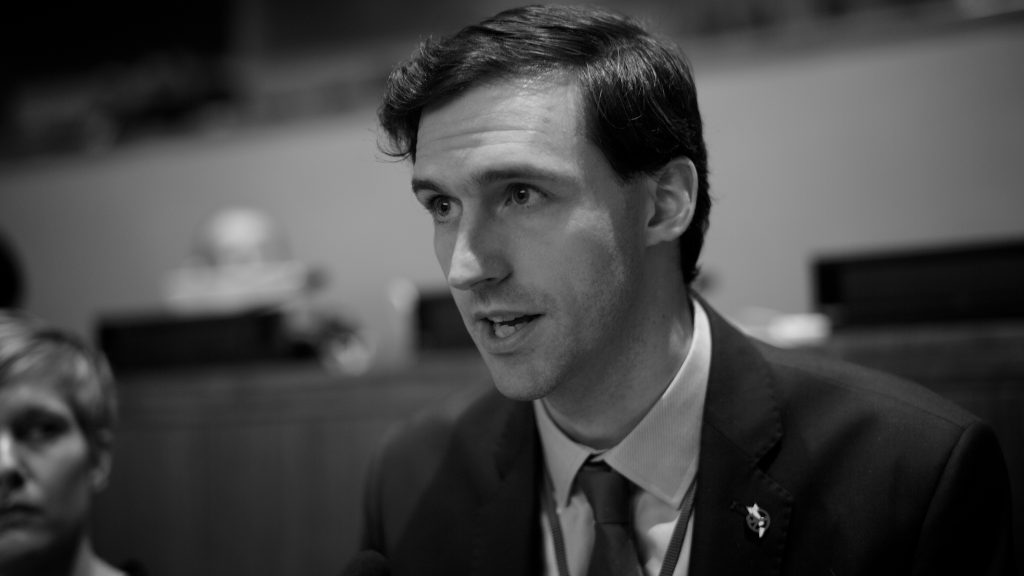
Matthew Bolton, Director of Pace University’s International Disarmament Institute, asks questions on preambular provisions to states negotiating the proposed nuclear weapons ban treaty at the UN in New York.
Commentary by Matthew Bolton, Director of Pace University’s International Disarmament Institute in an interactive session on the preamble during the UN negotiations on a nuclear weapons ban treaty.
Thank you for the President’s kind invitation for input from academia, echoed by several delegations this morning. My comments here are intended to offer input derived from my research on preambles of disarmament and arms control treaties. Such preambles often reflect a commitment to ongoing normative development. It would be useful to hear the views of states and the panelists on this matter. In particular, I would like to focus on two elements of this question.
Firstly, how will the preamble of the proposed nuclear weapons ban treaty be placed in the context of the broader obligation to pursue general and complete disarmament (such as in Article VI of the Nuclear Non-Proliferation Treaty)? An example of a clause that serves such a function in the Chemical Weapons Convention reads:
Determined to act with a view to achieving effective progress towards general and complete disarmament under strict and effective international control, including the prohibition and elimination of all types of weapons of mass destruction,
Secondly, how will the preamble of the proposed treaty be placed in the broader context of the development of humanitarian norms? Humanitarian disarmament treaties often include a version of the Martens Clause. Such a clause could recognize the voices of public conscience that have played a crucial role in generating the mobilization for a treaty, including voices of survivors, civil society and the Red Cross and Red Crescent Movement, faith leaders and the UN. An example of a clause that serves this function in the Convention on Cluster Munitions reads:
Stressing the role of public conscience in furthering the principles of humanity as evidenced by the global call for an end to civilian suffering caused by cluster munitions and recognising the efforts to that end undertaken by the United Nations, the International Committee of the Red Cross, the Cluster Munition Coalition and numerous other non-governmental organisations around the world,
Thank you, Chair.
